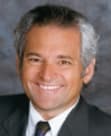As I See It
Mark My Words
Neologisms – when to adopt, when to shun and when to reconsider.
By Paul S. Koch, MD, Editor Emeritus
Occasionally one has to express regret and retract things said in a moment of haste, or spoken without sufficient background, knowledge and insight. On the other hand, sometimes one considers making such an admission, but on further reflection feels one was actually right all along. Such is the place I inhabit today as I vacillate between maintaining or changing my position on big words.
I'm speaking here of words unfamiliar to me, though perhaps regular vocabulary for someone else. These words sneak up on me, at first a curiosity — I must learn what that means, I think — but then I hear it again and again. Where has it been all my life, or perhaps where have I been? Do I like the word? Does it maintain the natural rhythm, cadence and syntax of the English language, or does it grate, mystify and obfuscate?
Divine Definitions
What got me started on a review of my linguistic prejudices was the Council of Bishops' rewrite of the Nicene Creed under orders from the Vatican to better align the English missal with the Roman missal. During this recent effort, several simple traditional phrases were replaced, many with words of the same flavor, but some quite grating.
National derision focused on one word the congregation has to recite, that word being “consubstantial.” What an odd and awkward word. Ink spilled all over the country, declaring that if they thought that was a good selection, then apparently the bishops had too much time on their hands. Comedian Stephen Colbert said at the time, “We're trying to get into heaven here, not take the SATs!”
I enthusiastically agreed, until I learned that it was merely an English translation of the Latin word used for centuries: “consubstantialem.” That dropped egg on my face. Perhaps the Jesuits teaching my theology classes at Holy Cross covered this material; if so, I wasn't paying attention that day. Shame on me. It makes me wonder what other words that I don't like are really quite excellent. Here are a few.
Language Arts
I remember like it was yesterday the first time I heard the word “paradigm.” I thought I figured out its meaning from the context — it was a model, an example. But then I heard “paradigm shift.” Did the model change, or was the example different?
Eventually I heard a lecturer patiently explain that a series of events, each slightly different than the previous, caused an imperceptible change from its predecessor and then one day, Wow! — the last event was a world away from the first. The change was subtle in each step but significant from beginning to end.
I guess that's what our cataract patients go through. A little change each day becomes a change in lifestyle four years later. Now I've got it. Paradigm, with or without its concomitant shift, stays. I like it now.
Until a few years ago, I had never heard the word apodized. Not in conversation, not in print, not even in my college physics classes (probably daydreaming that day, too). When I first heard it, I thought it was a made-up word, just some nonsense dreamed up by clever marketers to differentiate their product. Then I learned it was indeed a term used in optics to represent a non-uniform profile that approaches zero at the edges. Now it makes sense. It's an engineering term that describes a feature of the product it's linked with. Good or bad, it's an attempt to tell the customers what they're going to get in the box. I like that. It's a good use of the word.
I'll concede I changed my mind on those three, but I hold firm in my disdain for “armamentarium.” You surely know how it's used. Someone teaches a technique and says you should add that to your armamentarium — i.e., the techniques available to one for carrying out one's duties. It's accurate and correct, but the long word throws off the rhythm and cadence of the otherwise simple sentence. Its length and archaic tone distract me from an otherwise wonderful presentation. If that word went away, I'd never miss it. OM

|
Paul S. Koch, MD is editor emeritus of Ophthalmology Management and the medical director of Koch Eye Associates in Warwick, RI. His e-mail is paulkoch@kocheye.com. |








